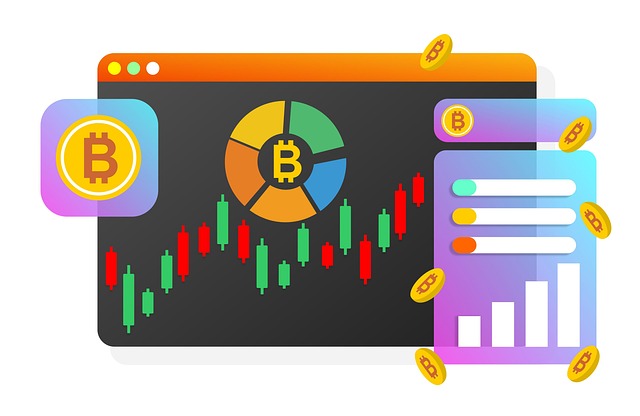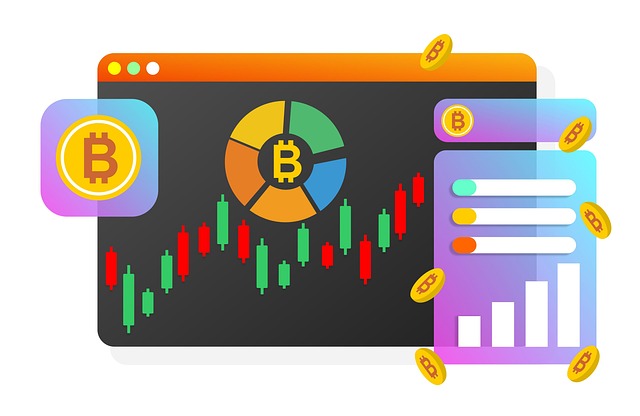Is eToro Good for Crypto? A Complete, Practical Review
Author: Jameson Richman Expert
Published On: 2025-11-06
Prepared by Jameson Richman and our team of experts with over a decade of experience in cryptocurrency and digital asset analysis. Learn more about us.
Is eToro good for crypto? This article answers that question in depth. You’ll get a clear, actionable review of eToro’s crypto features, fees, security, custody, trading tools, copy trading, and real-world use cases — plus direct comparisons and alternative exchange recommendations. Whether you’re a beginner considering your first buy or an active trader comparing platforms, this guide gives evidence-based pros and cons, examples, and links to helpful resources so you can decide confidently.

Quick summary — is eToro good for crypto?
Short answer: Yes, eToro can be good for crypto depending on your priorities. eToro excels at ease-of-use, social/copy trading, and regulated brokerage protections in many jurisdictions. It’s especially attractive to beginners and social traders who prioritize a unified multi-asset experience. However, traders who want low fees, deep order-book execution, or full self-custody may find dedicated exchanges (e.g., Binance, Bybit, Bitget) better suited. Below we examine the details — fees, security, coins, trading features, tax handling, custody, and real-world tips.
Table of contents
- How eToro handles crypto — basic architecture
- Security, regulation, and custody — is your crypto safe?
- Fees, spreads, and costs — what you’ll actually pay
- Assets and liquidity — how many coins and trading options
- Trading tools: copy trading, social features, and advanced tools
- Who should use eToro — use cases and examples
- Alternatives to eToro — best platforms depending on needs
- Practical tips, tax considerations, and FAQs
- Further reading and tools
How eToro handles crypto — basic architecture
eToro operates as a multi-asset broker offering both CFD (contract for difference) trading and real crypto asset purchases depending on your region. When you buy “crypto” on eToro’s retail platform, you usually purchase the actual token that eToro holds in custody on behalf of clients (except where CFDs are mandated or offered). eToro also provides the eToro Wallet app for self-custody transfers and withdrawals to your own addresses in many jurisdictions.
Key architecture points:
- Broker custody model: eToro often holds crypto in omnibus wallets on behalf of users — convenient but different from owning private keys.
- eToro Wallet: A separate app that allows withdrawals to external addresses and peer-to-peer transfers for supported tokens.
- CFDs: In certain regions and for some products, you may trade crypto via CFDs rather than owning the underlying asset.

Security, regulation, and custody — is your crypto safe?
Security and regulatory oversight are major considerations when deciding “is eToro good for crypto?”. Here’s how eToro stacks up:
Regulation
- eToro operates under multiple regulators including the UK Financial Conduct Authority (FCA), Australian Securities & Investments Commission (ASIC), and Cyprus Securities and Exchange Commission (CySEC) for different entities. See eToro’s official site for current licensing details: eToro official.
- Regulation offers investor protections for fiat and certain trading activities, which many crypto-only exchanges do not provide.
Custody and self-custody trade-offs
eToro’s custody model makes cryptocurrencies easier to access, but there’s an important trade-off: you don’t control the private keys unless you withdraw to the eToro Wallet and then move to an external wallet. The security of your coins depends on eToro’s custody practices, cold storage policies, and incident response.
Security practices
- Many large platforms use a mix of cold storage (offline) for a percentage of funds and hot wallets for liquidity. eToro publicly states cold-storage procedures — good practice for platform security.
- Users should enable two-factor authentication (2FA), strong passwords, and hardware wallets for long-term holdings when possible.
- For a primer on cryptocurrency custody and private keys, consult the Wikipedia overview: Cryptocurrency wallet — Wikipedia.
Fees, spreads, and costs — what you’ll actually pay
One of the most frequent sub-questions in “is eToro good for crypto” is about costs. eToro’s pricing model includes spreads (the difference between buy and sell prices), deposit/withdrawal fees, and possible withdrawal fees when moving crypto out to your own wallet. It’s not always the cheapest option.
Typical costs
- Spreads: eToro uses spreads that can be wider than order-book based exchanges for some pairs. This can make frequent trading more expensive.
- Withdrawal fees: There may be a small network fee or flat withdrawal fee when transferring crypto out to an external wallet.
- Deposit fees: Deposits via bank transfer can be free, but card deposits or currency conversion may incur fees.
Comparison example
Example: Buying small amounts of altcoins frequently on eToro can become costly compared to an exchange like Binance or Bybit that offers maker/taker fee tiers and lower spreads. If low trading fees and deep liquidity are important, compare fee schedules before deciding.
Assets and liquidity — how many coins and trading options
eToro offers a broad but curated list of crypto assets (major coins like BTC, ETH, LTC, XRP and many altcoins). The exact number of supported assets can change as eToro lists or delists tokens. For traders seeking the maximum token variety or derivatives, dedicated exchanges may offer more choices.
What eToro is good at
- Major coins and popular altcoins accessibility for beginners.
- Unified platform — you can buy stocks, ETFs, and crypto in one account.
- Social features to follow traders across multiple assets.
Liquidity considerations
On high-volume assets like BTC and ETH, liquidity is usually sufficient for most retail orders on eToro. For low-volume tokens or large blocks, order-book exchanges (Binance, Bybit, Bitget, MEXC) provide deeper liquidity and more advanced order types.

Trading tools: copy trading, social features, and advanced tools
eToro’s standout features are its social network and CopyTrader system, which let users follow and automatically copy experienced traders’ portfolios and strategies. For many users asking “is eToro good for crypto,” this social layer is a key differentiator.
Copy trading explained
Copy trading allows you to allocate capital to mirror another trader’s positions. This is attractive for beginners who want to learn or to gain exposure without building their own strategy. But it requires careful vetting of the trader’s history, risk profile, and drawdown behavior.
For a technical complement, consider learning to incorporate signals and automation. If you use Telegram trading signals and want to route them into execution platforms like MT4, see this practical guide: How to copy Telegram signals to MT4.
Automation and trading bots
If you’re evaluating automation, eToro’s platform isn’t designed for custom automated bots the way order-book exchanges that offer APIs are. For insights into what trading bots can do and whether automation suits your plan, this guide is useful: What do trading bots do — complete guide.
Advanced traders and derivatives
Active traders who need margin, futures, or complex derivatives should compare eToro to specialized derivatives platforms. For example, Bybit provides advanced perpetual futures and spot tools; check their platform overview here: Bybit spot trading platform guide.
Real examples and use cases — who benefits from eToro?
Let’s break down real-world examples to illustrate when eToro is a good choice and when it isn’t.
Case A — Absolute beginner (buy-and-hold)
Profile: New to crypto, wants to buy BTC and hold for years. Prioritizes simplicity, regulated environment, and easy fiat on/off ramps.
Why eToro is good: Easy account setup, simple buy/sell interface, integrated fiat deposit, and an option to transfer to eToro Wallet when ready. For a beginner this is a strong match.
Case B — Social trader who copies others
Profile: Wants to learn by following experienced traders, allocate small amounts to copy trading.
Why eToro is good: CopyTrader and public portfolios make it easy to discover and mirror traders. However, perform due diligence on performance history and risk management.
Case C — Active day trader who needs low fees
Profile: Makes many trades daily, needs tight spreads, direct order-book access, margin, and advanced charts.
Why eToro may not be ideal: Spreads can be wider and order types less flexible than on specialized exchanges (Binance, Bitget, Bybit). Consider alternatives with API access and lower maker/taker fees.
Case D — Long-term holder who wants self-custody
Profile: Plans to store coins long-term in a hardware wallet.
Why eToro may be okay temporarily but consider withdrawals: eToro supports withdrawals to external wallets via eToro Wallet — but you’ll incur withdrawal steps and possible fees. If full custody and hardware wallet integration are priorities, buy from an exchange and withdraw directly to your device.
Alternatives to eToro — which platforms should you compare?
If you still ask “is eToro good for crypto” but want alternatives, here are high-quality platforms tailored to different needs. I include referral links below for convenience if you want to sign up and test them.
- Binance — Best for low fees and deep liquidity. Register: Register on Binance. For global traders focused on many tokens and derivatives, Binance is a top choice.
- Bybit — Strong derivatives and spot trading with advanced order types. Sign up: Join Bybit. See a Bybit spot guide here: Bybit spot trading platform guide.
- Bitget — Good for copy trading and derivatives with lower fees. Register: Join Bitget.
- MEXC — Strong altcoin listings and competitive fees. Register: Sign up for MEXC.
Each alternative has trade-offs. Use eToro for simplicity and social trading; use Binance, Bybit, Bitget, or MEXC for price-competitive trading, APIs, and derivatives.

Tax and reporting considerations
Taxes on crypto depend on your country. Selling, trading, or converting crypto can generate taxable events. eToro provides account statements but you must keep records for taxation. For U.S. taxpayers, the IRS provides guidance on virtual currencies: IRS – Frequently Asked Questions on Virtual Currencies. For general background on crypto taxation, consult authoritative local tax resources or a CPA experienced in crypto.
Practical tips for using eToro for crypto
- Enable 2FA and secure your account: Use an authenticator app and a unique, strong password.
- Start small and test withdrawals: Before moving large amounts, test the withdrawal process to the eToro Wallet to confirm timings and fees.
- Vet copy traders thoroughly: Review long-term performance, drawdown, risk score, and number of copiers before allocating funds.
- Understand when you own the asset: Confirm whether your position is a CFD or actual crypto in your jurisdiction.
- Consider custody strategy: For long-term holdings, move funds to self-custody (hardware wallet) after buying.
- Compare fees for frequent traders: If you trade often, calculate spread+withdrawal costs vs exchange taker fees.
Use cases where eToro is especially strong
- Beginners buying their first crypto with fiat and wanting a regulated environment.
- Investors who want a single platform for stocks, ETFs, and crypto.
- Traders who appreciate social features and easy copy trading.
- Users who value an app-centric experience with an integrated wallet option.

When eToro may not be the best choice
- You need the lowest fees and tightest spreads for high-frequency trading.
- You require advanced derivatives, large-leverage positions, or deep order-book execution.
- You insist on immediate self-custody and hardware wallet integration without withdrawal steps.
Advanced trading and research — boosting performance
For traders seeking performance advantages, automated strategies and AI agents are becoming more common. Learnings from advanced automation can apply whether you use eToro or another platform. For an in-depth guide on using AI agents in crypto trading, see: Mastering crypto trading with AI agents.
Also, if you’re exploring trade signals or example buy ideas, review curated insights like this “smart example of cryptocurrency to buy today”: Smart example of cryptocurrency to buy today. These resources can help inform decisions when combined with your own research.
Step-by-step example: Buying BTC on eToro and withdrawing to wallet
- Create and verify your eToro account (ID and KYC checks).
- Deposit fiat via bank transfer or card.
- Buy BTC using the spot buy interface — note the displayed spread.
- Install the eToro Wallet app and complete wallet verification.
- Initiate a transfer from your eToro portfolio to eToro Wallet (internal transfer) and then withdraw to an external address if desired.
- Confirm the blockchain transaction and verify arrival in your software or hardware wallet.
If you prefer to route signals and automated trade instructions into execution engines or MT4/MT5 strategies, the guide on copying Telegram signals into MT4 may be useful: Copy Telegram signals to MT4. For automated trading approaches, also read about how trading bots operate: What trading bots do.

Comparing eToro to a few popular exchanges
Here’s a high-level comparison to help answer “is eToro good for crypto” relative to other platforms.
eToro vs Binance
- eToro: Simpler UI, social/copy trading, regulated broker structure. Good for beginners.
- Binance: Lower fees, deeper liquidity, extensive token listings, advanced order types and API access. Better for active traders.
eToro vs Bybit
- eToro: Broader multi-asset offering and social trading.
- Bybit: Advanced derivatives and spot exchange features. See Bybit’s onboarding here: Join Bybit.
eToro vs Bitget / MEXC
- Bitget: Competitive derivatives and social trading combos. Register: Bitget referral.
- MEXC: Broad altcoin listings and attractive fees. Register: MEXC referral.
Frequently asked questions (FAQs)
Q: Is eToro safe to buy crypto?
A: eToro is considered relatively safe for retail users due to regulation, security practices, and custody protocols. However, platform risk exists just like any centralized provider. For full control and absolute security, use self-custody (hardware wallets).
Q: Can I withdraw crypto from eToro to my own wallet?
A: Yes — in supported jurisdictions you can transfer crypto to the eToro Wallet app and then withdraw to external addresses. Expect network fees and follow confirmation steps.
Q: Are crypto trades on eToro taxable?
A: Yes — tax implications depend on local law. eToro provides account reports, but consult a tax professional for accurate treatment. See guidance for the U.S. here: IRS virtual currency FAQs.
Final verdict — is eToro good for crypto?
Answer: It depends on your goals. eToro is a robust, user-friendly, and regulated platform that’s excellent for beginners, social traders, and multi-asset investors who value convenience and a simple mobile-first experience. If you prioritize the lowest possible fees, API-based automation, deep derivatives liquidity, or full control of private keys immediately upon purchase, consider dedicated exchanges like Binance, Bybit, Bitget, or MEXC instead.
Consider the following decisive questions when choosing:
- Do you value simplicity and regulated custody more than the lowest fees?
- Will you copy other traders or use social trading features?
- Do you need derivatives, high leverage, and advanced order types?
- Will you move your crypto to self-custody long-term?

Next steps and resources
If you want to test alternatives or broaden your toolkit, consider signing up for these reputable exchanges to compare UX and fees firsthand:
- Binance: Create a Binance account
- Bybit: Join Bybit
- Bitget: Sign up for Bitget
- MEXC: Register on MEXC
Want to dive deeper into automation, signals, or AI-enhanced trading? Useful starting points:
- Guide on copying Telegram signals to MT4: Copy Telegram signals to MT4
- What trading bots do (complete guide): Trading bots guide
- Bybit spot trading platform guide: Bybit guide
- Smart example of cryptocurrency to buy today: Smart crypto buy example
- Advanced guide on AI agents in crypto trading: AI agents for crypto trading
Closing thought
“Is eToro good for crypto?” — For many retail investors and social traders: yes. It balances ease, regulation, and social features in a cohesive platform. For active, fee-sensitive traders and those requiring full custody from the outset, specialized exchanges remain compelling alternatives. Use the comparisons and resources here to pick the platform that matches your goals, and always practice secure account hygiene and sound risk management.